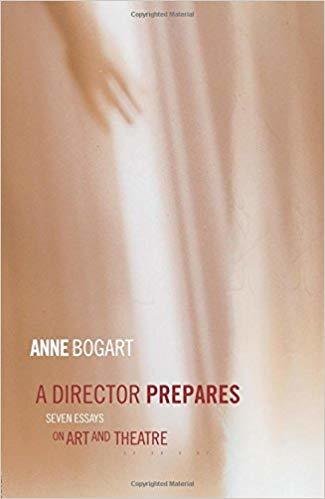A Director Prepares: Seven Essays on Art and Theatre
Editorial Reviews
From Library Journal
Bogart (directing, Columbia Univ.) is the artistic director of the SITI Company, an ensemble-based theater company that she founded with Tadshi Suzuki. Her book is aimed at the practitioner but has value for the avid theater goer as well. What we see on stage, as a whole, is a culmination of bits and pieces, steps forward and backward, as a work of "art" is created and then presented. In each essay, Bogart discusses one of seven concepts violence, memory, terror, eroticism, stereotype, embarrassment, and resistance that can work as an obstruction or catalyst to this creative process. The concepts themselves are thought-provoking, and Bogart's text is even more so. For Bogart, these concepts incite energy (positive or negative) that both actors and director absorb and radiate. One suspects that the energy acts on the viewer (and reader) as well. A quote by Jeanette Winterson on the first page clearly illustrates Bogart's passion and love of the theater experience: "Art is the burning bush that both shelters and makes visible our profounder longings." For all theater collections. Susan L. Peters, Univ. of Texas Medical Branch on Galveston
Copyright 2001 Reed Business Information, Inc.
Product details
- Paperback: 168 pages
- Publisher: Routledge; 1 edition (July 8, 2001)
- Language: English
- ISBN-10: 9780415238328
- ISBN-13: 978-0415238328
- ASIN: 0415238323
- Product Dimensions: 5.1 x 0.4 x 7.8 inches
- Shipping Weight: 6.4 ounces
Why us?
Writing an essay is extremely useful because it allows the author to learn how to clearly and correctly formulate thoughts, structure information, use basic concepts, highlight cause-effect relationships, illustrate experience with relevant examples, and argue their conclusions.
The books have a special charm; books cause us pleasure: they talk to us, give us good advice, they become living friends for us.

About Shop

James Hall
store owner
The Big Encyclopedic Dictionary gives the following definition: "Essay is a genre of philosophical, literary-critical, historical-biographical, journalistic prose, combining the author’s emphasized individual position with a relaxed, often paradoxical presentation, focused on spoken language."
